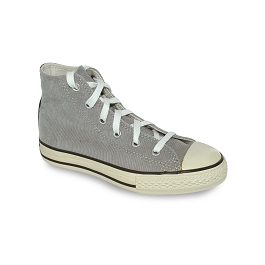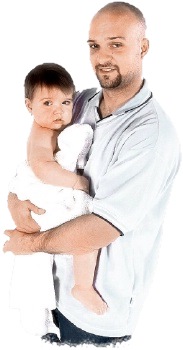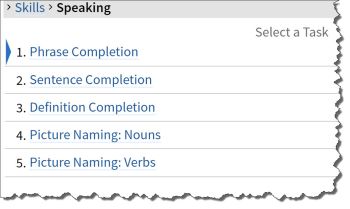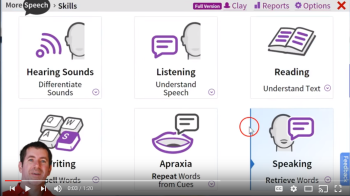Improve your spoken word-retrieval
Home treatment for word-retrieval (e.g., Expressive Aphasia, Anomia, etc.) due to stroke or TBI
Word-retrieval: difficulty with thinking of the right word to say or write. I call it Tip-Of-The-Tongue Syndrome because it's like everything is on the tip of your tongue.
 You know the concept in your head. You
recognize the photo, etc. you just can't get the word out in
speech and/or writing. I previously
covered written word-retrieval.
The most common diagnoses associated with Word-Retrieval are Expressive Aphasia or Anomia (naming
difficulty)
You know the concept in your head. You
recognize the photo, etc. you just can't get the word out in
speech and/or writing. I previously
covered written word-retrieval.
The most common diagnoses associated with Word-Retrieval are Expressive Aphasia or Anomia (naming
difficulty)
How severe is my word-retrieval?
- Before you try to evaluate spoken word-retrieval first confirm
physical (motor) speech is intact. If the survivor can not
physically produce speech then it is pointless to test whether they
can retrieve and produce speech. (See my previous
article:
How to
Evaluate Articulation difficulty to confirm they
can produce speech.)
If they cannot produce speech, start by evaluating written word retrieval -
 Show them the
Target everyday photo (or point to an everyday object) that
you are certain they could repeat the word back for. Give them plenty
of time to come up with the word. It might take them a minute or two.
Show them the
Target everyday photo (or point to an everyday object) that
you are certain they could repeat the word back for. Give them plenty
of time to come up with the word. It might take them a minute or two.
Let's assume the the Target is : Shoe - You can give them Hints gradually if they have
difficulty.
The goal is to provide a trail of breadcrumbs to the answer. Providing only as much help as they need.- Describe the Target or talk about it. For my example, you might say : You wear this on your foot.
- Provide phrase that prompts that word automatically. (Tie your left ___)
- Give them the first sound. (For Shoe: Shhhh)
Worksheets for Treatment at home
- Picture Naming I
- Phrase Construction
-
Sentence Construction
Have them describe a complex photo in a full sentences. Here are a few photos for Sentence Construction. These are from Sights'n Sounds 2 (part of our Monthly Subscription).
Have them write a complete sentence describing each of these.


Better then Worksheets
Worksheets are a fine place to start, unfortunately, there is no research that worksheets alone are effective (that was confirmed for me by researcher (Dept head of a a Speech Pathology University program). They are better if the caregiver (or therapist) works with the survivor while they are using them, so that the survivor can work at a challenging level without frustration. When the survivor is frustrated, the helper provides cueing.Luckily, there is a better alternative.
Specific Problems with Worksheets
- Many survivors are embarrassed by failing in front of someone, especially a family member. But they treatment should be challenging to be effective.
- Survivors often don't work well with family members (partially due to the failure issue above, and because of relationship dynamics. (You keep telling me what to do).
- Helping is hard to master. It takes enormous patience to provide only the hints/cues that the survivor needs. Provide too much and they'll get angry (you robbed them of the chance to be correct). Provide to little, and they get frustrated... and angry. Speech Pathologists get spend years on these skills. It's difficult to pickup in just a few hours, weeks, or even months
However,
the research shows that treatment software is effective.
Home Treatment for word-retrieval
Once upon a time there was a speech therapist who realized her patients needed more therapy than insurance was providing. So she asked her husband, a software engineer if he could help. So he created interactive treatment software for her to use at work. And her patients loved it. So did other therapists. So they made it available to everyone and he worked full time creating even more programs.
I am that software engineer. And I continue to work on that software today. It's used in the top Rehab Hospitals and all around the world.
We then collaborated with Dr. Richard Katz and produced a web-based program for speech therapy: MoreSpeech.com which provides unlimited practice for all areas of speech & language, including word retrieval in speech and writing. You can create a free account and try the Writing Skills.
Survivors often prefer working independently with treatment software because:
- They work at their speed and on their schedule.
- They can work in private, where no one can see them fail.
- They get cueing (hints) automatically, so it's frustration-free.
- They gain control over the very thing that has robbed them of freedom:
their speech & language.
MoreSpeech.com provides unlimited practice for all areas of speech & language, including word-retrieval (expressive aphasia/Anomia). You can create a free account and try it out.
Try MoreSpeech.com (claim your free account)Every day is an opportunity for recovery. Don't miss a single day.
- Surprising neuroscience discovery that makes recovery possible at any age.
- Why embracing failure leads to faster recovery.
- Unlock your survivor's communication needs in 4 steps.
- How to improve speech & language at the kitchen table.
Clay Nichols
Co-founder of
MoreSpeech and
Bungalow Software
for unlimited speech therapy at home and in the clinic.
 For
3 decades, Clay has helped patients, caregivers and speech pathologists
with speech & language software. He is not a speech-language
pathologist.
For
3 decades, Clay has helped patients, caregivers and speech pathologists
with speech & language software. He is not a speech-language
pathologist.
© 2025 Bungalow Software

